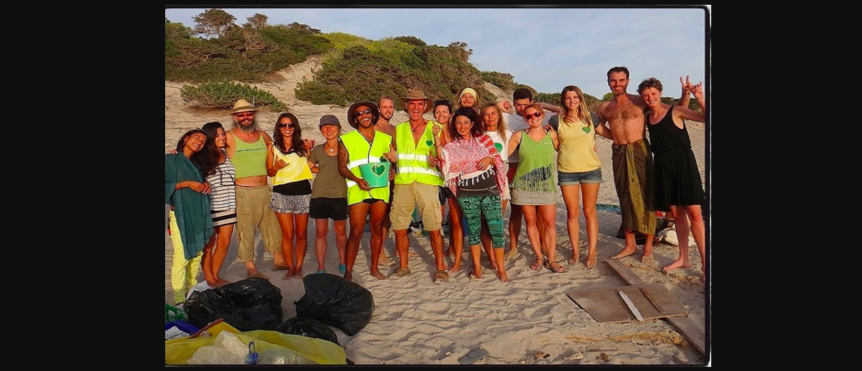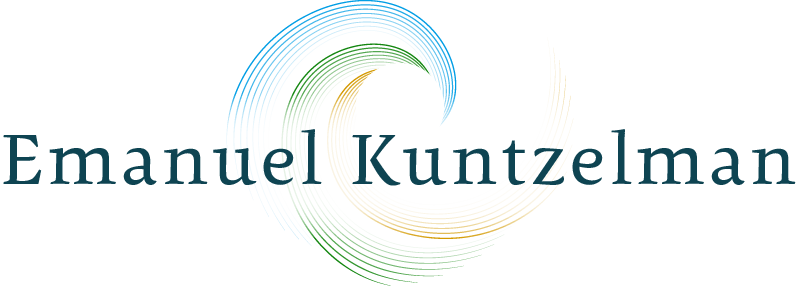
Celebrating Change-makers and Coherence During Chaotic Times
I recently finished the rough draft of a book I have been writing for years, entitled Riding the Wave of Global Purpose. The first part of the writing attempts to explain my views as an amateur cosmologist and evolutionary theorist. The latter two-thirds of the book, however, is a sociological analysis on how we can transform our world without the need for breaking down the structures of society. It is based on the underlying assumption that the painstakingly slow, but consistent, progress of liberal, social democratic values is eventually going to be good enough to transform the world.
As ugly as things often look, we have been making some progress. Previously, I wrote about astonishing accomplishments that have taken place in the last half-century, a list that is unfortunately overshadowed by the growing beliefs that the state of the world is declining by the day. Despite the milestone transformations, however, there is a vast amount of work still to be done. The challenge to keep up the momentum is made worse by our obsession for getting our fair piece of the pie. Many people cling to a perspective of “me versus them” and “scarcity versus abundance.” This creates fear and unsustainable materialistic wants challenged by an increasingly globalized world, where the solutions to our problems must be found within a global context. As eco-philosopher, author and visionary Joanna Macy, stated:
“We’ve got to use our wits, and by grace re-knit and find our way into some solidarity with one another. We’re facing the biggest challenge humanity has ever faced, with climate change and the threat of nuclear war, which I think is very real.”
Navigating Our Bifurcation Point
We are in a time when the old ways of operating are no longer serving the community, and there is no other choice but to seek solutions to our problems with the good of the global community in mind. Ethno-centric protectionism got us into many of these conflicts, and reverting to that attitude is a huge step backward that, in the long run, will only make matters worse.
When systems, like our global one, get pushed out of balance and end up far from equilibrium, they reach a bifurcation point where they either break down or transform into something new. Molecular and chemical systems, even without minds to think it through, have an amazing ability to reach beyond the boundaries of their system, extract new energy, and transform themselves into something completely new when challenged to do so. We humans, however, become emotionally attached to our fears and sense of inadequacy, resulting in a deep-seated anger about our plight.
I have always been an optimist, but the emotional attachment fueling this so-called populist uprising does not have a happy ending, no matter how it is construed. In my book, I was hoping to tell the tale of transformation and how we built a new world based on compassion, forgiveness, inclusivity and good will. Is that still possible? Or will all of this have to get a whole lot worse before it ever turns around?
In a recent interview I did with Ervin Laszlo, he stressed the natural ability of coherence to arise within chaotic systems. His words inspired not only me, but also my brother Ken, who pointed out that the coherent systems prevailing in chaotic environments give us hope in the “dynamics and complexity of planetary life, national politics, and our particular evolutionary task. As much as I want to rage, I take heart in Laszlo’s vision to, of course, be the change.”
Celebrating Change-Maker, Chris Dews

Thus, as the reactionary worldwide political movement takes us a little closer to chaos, it also gives me hope to remember that a great movement of super-coherence is emerging. Every day, individuals are utilizing higher consciousness to promote a much-needed service to renovate our failing systems and find coherence within the chaos. One change-maker in particular that I would like to recognize is Chris Dews, founder of the model ecology center known as the “Casita Verde” on the island of Ibiza, Spain.
Chris’s passion for environmentalism and sustainability is what inspired the idea for founding Casita Verde. Its model system was developed as a reaction to the excessive, materialistic environment on the island of Ibiza and in the world in general. Rather than being a product of the old system, Casita Verde has arisen as a vibrant new solution to the problems of the old system, and an example that we can live in an environmentally conscious way. The fact that most of the Casita Verde is built out of recycled scrap and waste materials literally demonstrates that junk can be turned into beauty with a little imagination and determination.

Chris Dews working with volunteers at Casita Verde.
I have known Chris for twenty years and have worked closely with him since 2000, when the Foundation for the Future in Madrid, of which I am the president, began supporting the development of the Casita Verde. With a small budget, Chris has used his self-taught skills, tenacity, and powerful vision for an environmentally sane planet to be the change that generates love and respect for planet earth.
It’s not just the passion and vision that makes Casita Verde inspiring. Other than Chris, the project is driven solely by a team of ever-changing volunteers. It is amazing how many people are willing to work hard, often for years at a time, for a good cause and firm belief in the importance of environmentalism.

Volunteers help take care of the aloe vera plants at Casita Verde.
Casita Verde is just one example of positive change that can be accomplished with minimal resources. Rather than waiting for change from big institutions like the government, this project has taken the initiative to create an eco-friendly mindset on the island of Ibiza.
Holding off climate change and the degradation of the environment are probably the most important issues of our time. We must have a healthy environment in order to transform anything. It’s rather like an individual—if we don’t have a healthy body it is unlikely that we can accomplish much in the way of personal transformation. If we are suffering from a deteriorating environment it is going to be very difficult to expect society to change for the better.

The beautiful view from the hilltops of Casita Verde.
It is with the help of change-makers like Chris Dews and Ervin Laszlo, and many others I hope to highlight in the months ahead, that we can begin to find coherence within these chaotic times. Through their efforts, we can all be empowered to transform the world to one that embraces compassion and cooperation and persevere in this critical bifurcation point.
This story is just one of many that can inspire each of us to take positive action. For more information on Chris Dews and Casita Verde, save the date for April 30 when he will be giving a TEDx talk in San Antoni, on the island of Ibiza, on the resurgence of the island as a global model for creating a coherent system.

Comments 1
Lovely direction with your writing, Emanuel, to focus on change makers in the world. George Leonard used to encourage us to not give our power to the problem. Your emphasis on great works going on in the world reinforces our inherent power to creatively problem solve as a species. Yahoo!